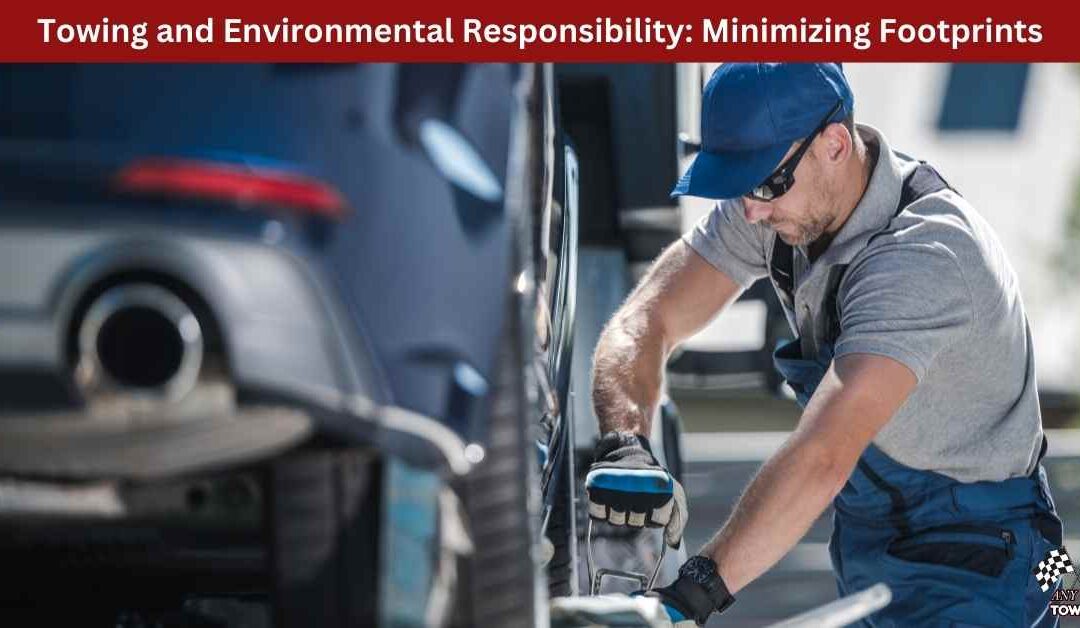When people think of the towing industry, “green practices” aren’t usually the first thing that comes to mind. Tow trucks are big, powerful machines designed to pull and transport vehicles, and that often means fuel consumption and emissions. But the industry is changing. Many towing companies are taking steps to reduce their environmental footprint while still delivering fast, reliable service to drivers in need.
Why Environmental Responsibility Matters in Towing
Every time a tow truck hits the road, there’s an impact. From fuel use to oil changes, to what happens with the vehicles we recover, the choices towing companies make ripple out into the environment.
Take, for example, the vehicles towed to a wrecker’s yard. Without proper recycling, their fluids and materials could harm soil and waterways. On the other hand, if those vehicles are dismantled responsibly, valuable metals and parts get reused instead of ending up as waste. It’s not just about being eco-friendly—it’s about being accountable for the bigger picture.
Smarter Fleets, Smaller Footprints
One of the biggest changes in the industry has been upgrading fleets with more efficient trucks. Some companies are shifting to low-emission vehicles, while others are using route-optimization software.
Here’s how it makes a difference:
- Fuel Efficiency: Modern tow trucks with cleaner engines burn less fuel.
- Smarter Dispatch: GPS and tracking systems help dispatchers send the closest available truck, cutting down on unnecessary driving.
- Regular Maintenance: Well-maintained trucks run more efficiently and pollute less.
Even small improvements—like reducing idle time—add up over a year.
Handling Vehicles the Responsible Way
Environmental responsibility isn’t just about the trucks themselves. It’s also about what happens to the cars they tow.
- Recycling Fluids: Engine oil, coolant, and transmission fluids can be harmful if not disposed of properly. Responsible companies work with certified recycling facilities to handle them safely.
- Scrap Metal Recovery: Vehicles that can’t be repaired still hold valuable steel, aluminum, and copper that can be recycled.
- Reusing Parts: Auto wreckers often salvage usable parts for resale, giving components a second life instead of sending them to landfill.
These practices reduce waste and conserve resources while also benefiting customers looking for affordable replacement parts.
A Story from the Yard
Recently, our team towed in a flood-damaged car that couldn’t be repaired. In the past, it might have sat rusting in a corner. Instead, it was carefully dismantled—fluids drained and recycled, usable parts set aside, and the frame sent off for scrap metal recycling. What could have been a pile of waste turned into dozens of reusable resources.
Driving Toward a Greener Future
The towing industry may never be completely “green”—after all, heavy-duty recovery requires serious power. But by adopting smarter practices, investing in efficient fleets, and working with recyclers, we can significantly reduce our footprint.
For drivers, this means choosing a towing service that cares not just about moving vehicles but also about protecting the environment we all share. For towing companies, it’s about proving that responsibility and reliability can go hand in hand.
Now Any Car Towing is available in Hampton Park Victoria 3976.
Contact Us
Any Car Towing
10 Silvergum Pl, Cranbourne VIC 3977
0413 176 223


Recent Comments